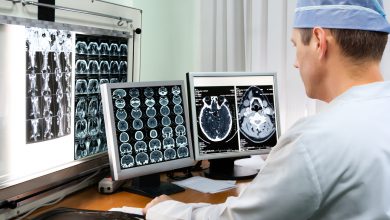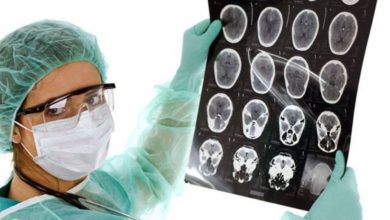Chemotherapy for brain cancer
The content of the article

Today, chemotherapy for brain cancer is carried out much less frequently, in contrast to the treatment of other organs with the same disease.
This is due to several serious reasons:
- Not all formations in the brain react to cytostatics. When taking stronger drugs, pronounced side effects may occur in certain patients.
- The brain has a barrier that selectively controls the metabolism between the central nervous system, blood and cerebrospinal fluid. This allows the environment of the brain and spinal cord to remain unchanged, which prevents the penetration of the chemotherapy drug to the site of the disease.
Innovative methods to fight cancer
Topical drugs make it possible to act directly on the affected brain tissue, avoiding losses associated with the blood-brain barrier.
Intrathecal chemotherapy
Using a lumbar puncture, the desired drug is injected directly into the cerebrospinal fluid. The effect occurs after mixing the cerebrospinal fluid and the chemotherapy drug. In this form, the drug is delivered to the brain.

Interstitial chemotherapy
Used after removal of a cancerous tumor. In this case, a chemotherapy drug is injected into the void where the tumor was.
Convection chemotherapy
When using this delivery method, the cytostatic is injected directly into tumor or adjacent tissues. For insertion, a special catheter is used, which delivers the chemotherapy drug in doses. The procedure lasts up to several days, after which the catheter is removed.
Intra-arterial chemotherapy
The chemotherapy drug reaches the site of the disease by injecting it into an artery in the brain. Blood circulates and reaches all parts of the brain. At the same time, the concentration of the cytostatic agent itself is low. It is often used in combination with treatment or before surgery to suppress undetected or incipient tumor foci.
Side effects
It is a well-known fact that chemotherapy has a negative effect not only on cancer cells and tissues, but also on healthy cells. Therefore, after undergoing therapy, consequences such as infertility, skin diseases, disruption of the gastrointestinal tract, kidneys and liver often occur.
In order to speed up recovery after chemotherapy, it is recommended to drink more pure, still water to quickly eliminate toxic products.
Please rate the article:


 (3 ratings, average: 3,67 out of 5)
(3 ratings, average: 3,67 out of 5)



